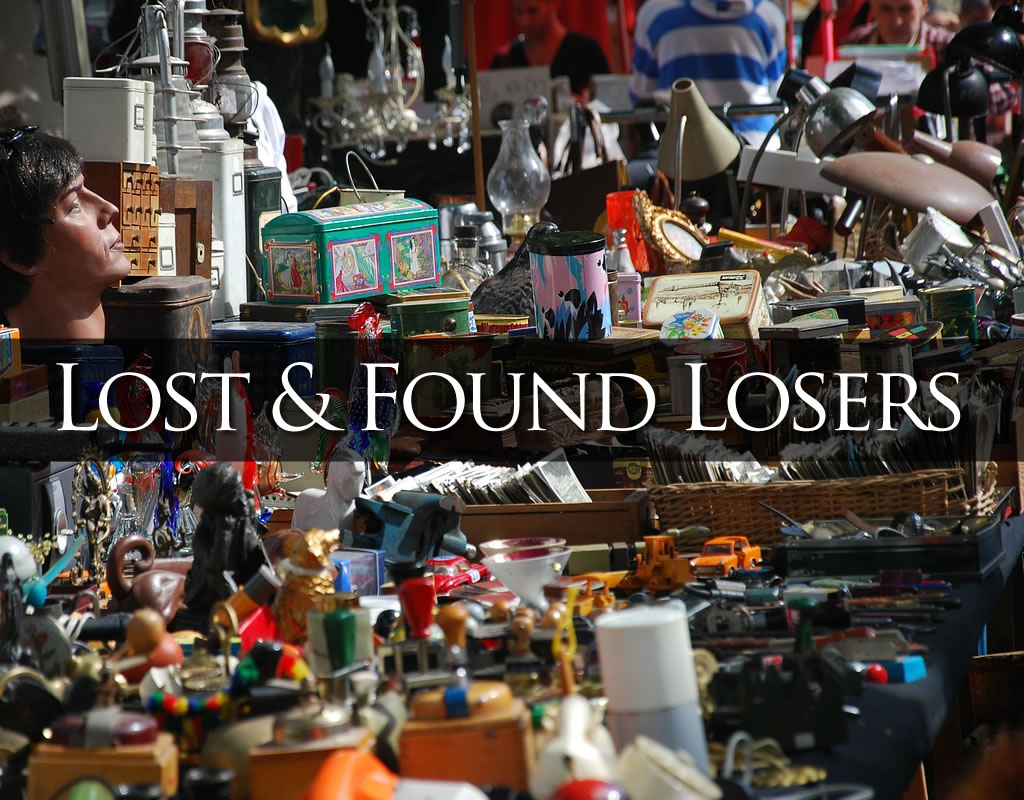Lost and Found Losers

Lost and found items create logistical challenges, but stories are always about people. The story of how (or whether) a person is reunited with a lost item they need or value determines the success of important business relationships. Create a story about your relationship with your customer—a person, or they’ll move on to conduct business where they feel cared about.
A colleague in the speaking business shared the following Facebook post:
Signature Service: Delta called me the other day and asked, “Are you missing anything important after your most recent flight?” We played a guessing game for a moment as I considered what it could be … until I realized my FitBit was no longer on my wrist. Yes, they found it on the plane, hunted me down, got it back to me. That’s incredible and another reason, despite occasional delays on travel, and the small inconveniences of flying around for a living, why they are pretty dang awesome, my airline of choice, and always keep The Promise to their Audience, in this case to The One: me! Thank you Delta Air Lines#SignatureService #thepromise
I had the opposite experience on my own recent trip to the same destination. I rented a vehicle for the first day of my visit, and then accidentally left my camcorder in the rental car when I returned it. I discovered the mistake within hours, called, and then the fun began. I spoke with agents who tried to be helpful, but the lost and found desk was “closed for the day.” I went online and filed a lost item claim on the company’s website.
When I called after my meeting at 1:00pm the following day, I was told to “get down here quick” because the lost and found desk was scheduled to close again at 2:00. An $18 ride brought me back to the rental car agency. There, I entered the “creepy world of lost toys.” Piles of bags, cases, electronics, jackets, and other items surrounded a bespectacled woman—I’ll call her Eileen—who dutifully struggled to match on-screen claims to physical objects. I poked through the piles but didn’t find my camcorder bag.
“Sometimes lost and found things end up in the manager’s office,” she said. “Come with me.”
I followed but though the manager was sympathetic, still no camcorder.
I accompanied Eileen to the maintenance bays where cars are cleaned and made ready for the next customer. There, we opened up the “lost and found item drop boxes.”
Could that be it?
No. It wasn’t my bag. At the bottom of the drop box was a small black case—no paperwork, no VIN number. After having been dropped three feet, the item lay—hopefully still in functional condition—at the bottom of a metal locker, stripped of the one piece of information that would have allowed it to be easily reunited with its owner.
Astonished, I pointed this out to Eileen. “Had the item been placed in a baggie and marked with the vehicle identification number and time of recovery, you’d have all the information you’d need to tell people you’d recovered their property, often before they knew it had gone missing.”
“That would make my job a lot easier,” agreed Eileen.
“And if you’re going to drop the items, why not put some foam rubber at the bottom of the box? Dropping my camcorder wouldn’t do it much good.”
Eileen nodded.
“So where could it have gone?” I asked as we stepped back into her office. “I dropped the car off yesterday afternoon.”
Eileen checked her computer. “There was supposed to be a hold on that car since you called last night, but it looks like we’ve rented it to someone else.”
“But wouldn’t it have been found when you cleaned it?”
She paused and took a breath. “Sometimes the night cleaning crew are subcontractors,” she confessed.
Probably, my camcorder is sitting in a pawn shop somewhere.
Another $18 ride brought me back to the hotel where I continued attending my conference without my $800 camcorder.
I’d had a similar experience a few months earlier on the “big airline.” After a long flight home with my family, we discovered just after we left the baggage claim that my daughter had left her phone in the airplane seat pocket . Our plane was still on the ground and we were still at the airport. We called and gave them our seat number and flight number. Any employee could have matched the seat to a name and contact record, but calls to recover the phone produced nothing. We were finally sent the phone a month after we’d lost it—about three weeks after we’d replaced it. Fail.
Stories are always about people. Delta airlines figured out that by equipping their flight staff with baggies and markers (or whatever system they use), they could build lasting, loyal customer relationships with customers who would publicly attest to their high standards. Every lost item is an opportunity to delight customers and inspire them to do business with them again.
The other airline and the rental car company looked no deeper than the logistics of matching items with claims forms. In fact, the first step in the rental agency’s “recovery” process is to disconnect the item from the information required to track down its owner.
The loss of a phone, laptop, camera, favorite jacket, or a child’s favorite toy can produce dramatic emotional or financial consequences. Companies that are organized and visionary enough to solve problems before customers even reach that “Oh, no!” moment get to be the heroes in their customers’ stories. They build lasting relationships that lead to long-term success.


